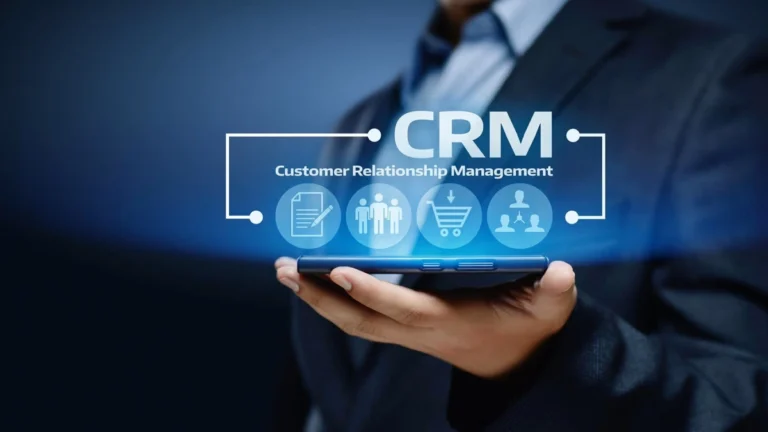Running a charity in the UK isn’t just about delivering impact; it’s also about keeping your finances in check. That’s where charity accounting software UK comes in. These specialised systems are built to handle the unique needs of nonprofits, from tracking restricted and unrestricted funds to managing Gift Aid and ensuring SORP compliance.
Efficient, compliant financial management isn’t just a box to tick; it’s the backbone of trust. Funders, donors, and regulators expect transparency, accuracy, and timely reporting. Without the right systems, small mistakes can snowball into audits, lost donations, or compliance headaches. For staff and trustees, it can feel like managing numbers instead of focusing on your mission.
That’s why getting professional support matters. At Evolve Catalyst, we help you build your charity by setting up the right charity digital and tech infrastructure, including accounting systems developed for your sector. From cloud charity accounting software to donor and fund management integration, we make sure your charity isn’t just compliant, but thriving.
With the right systems and guidance, you can free up time, reduce errors, and make good financial decisions, all while keeping your supporters confident that every pound is accounted for.
What Is Charity Accounting Software?
When people think of accounting software, they often picture standard systems like QuickBooks or Xero used by small businesses. But charity accounting software UK is a different beast; it’s developed specifically for nonprofits, helping them manage money in ways that regular software can’t.
At its core, charity accounting software lets you track donations, grants, and spending while making sure every pound is accounted for. It’s about more than just balancing the books; it’s about reporting clearly to trustees, funders, and regulators, and keeping your charity compliant with UK rules.
1. Charity vs Standard Accounting Software
Unlike standard accounting software, charity-focused platforms handle:
- Restricted vs Unrestricted Funds: Not all donations are the same. Charity software ensures you only spend restricted funds on their intended purpose.
- Gift Aid Management: Automates claiming Gift Aid from HMRC and keeps audit-ready records.
- Grant Tracking: Helps you manage applications, payments, and reporting obligations for grants.
- Donor and Fund Reporting: Generates reports for individual donors, campaigns, or projects, essential for transparency.
2. UK Charity Finance Regulations
Charities in the UK operate under a strict financial framework. Good charity accounting software aligns with these requirements:
- Charity Commission Regulations: Ensures compliance with the rules governing UK charities, including annual reporting and trustee responsibilities.
- SORP Compliance: The Statement of Recommended Practice (SORP) sets out how charities should prepare their accounts, including income recognition and fund accounting.
- Gift Aid & HMRC: Tracks donations eligible for Gift Aid and simplifies submission to HMRC, helping you claim every pound you’re entitled to.
- Making Tax Digital (MTD): Supports HMRC’s initiative for digital VAT reporting, so your charity can submit accurate, compliant tax information online.
Charity accounting software is purpose-built to save time, reduce errors, and make sure your finances are transparent and compliant, all while helping you focus on your mission rather than paperwork.
Why UK Charities Need Specialist Accounting Software
Running a charity isn’t like running a regular business. Most UK charities manage multiple income streams, different types of funds, and strict reporting rules, all while trying to make an impact. That’s why specialist charity accounting software isn’t a luxury; it’s a necessity.
1. Handling Sector-Specific Challenges
Charities face financial situations that standard software often can’t handle:
- Restricted and Unrestricted Funds: Donations come with strings attached. Restricted funds can only be spent on specific projects, while unrestricted funds are for general use. Specialist software keeps them separate and ensures you don’t accidentally cross the lines.
- Grant Management: Tracking grant applications, payments, restrictions, and reporting deadlines can be a full-time job. With the right systems, you can automate alerts, generate reports, and monitor compliance, all in one place.
- Complex Donations: From multi-currency gifts to recurring subscriptions, charity software manages diverse donation types while keeping ledgers accurate.
2. Ensuring Compliance, Transparency and Trust
Donors and regulators expect accountability. If your charity can’t provide clear, accurate financial reports, it risks losing credibility and even funding. Specialist software helps you:
- Produce SORP-compliant reports for the Charity Commission.
- Track Gift Aid claims for HMRC effortlessly.
- Give trustees real-time dashboards for better oversight.
- Maintain a clear audit trail to prove how every donation is used.
3. Meeting UK Legal Requirements
UK charities operate under rules that make accurate accounting vital:
- Charity Commission Guidelines: Trustees must ensure proper financial controls, reporting and governance.
- SORP (Statement of Recommended Practice): Sets the standards for financial reporting, including fund accounting and transparency.
- HMRC & Gift Aid Rules: Charities must keep precise records of eligible donations to claim Gift Aid without errors.
- Making Tax Digital (MTD): Charities submitting VAT digitally must comply with HMRC’s MTD framework.
Specialist charity accounting software doesn’t just help you balance your books; it protects your charity, builds donor confidence, and ensures compliance with UK regulations. For any charity serious about sustainable growth and accountability, it’s an essential system.
Charity Accounting Software Core Features
Not all accounting platforms are built with charities in mind. The best charity accounting software has features developed to meet sector-specific needs, keep you compliant, and save precious time. Here are the essentials every nonprofit should look for:
1. SORP-Compliant Reporting
Your accounts need to follow the Charities SORP. Good charity finance software generates reports in the right format, making it easier for trustees and auditors to review your finances without extra spreadsheets.
2. Gift Aid and HMRC Integration
Gift Aid is a lifeline for UK charities, but claiming it can be messy if you’re relying on manual processes. Specialist software:
- Tracks Gift Aid-eligible donations automatically.
- Submits claims directly to HMRC.
- Maintains full audit trails so you’re always ready if questioned.
3. Fund Tracking
Charities handle money that comes with different rules. With proper fund accounting software, you can:
- Keep restricted, unrestricted, and endowment funds separate.
- Show donors exactly how their money is spent.
- Avoid compliance issues by preventing cross-fund use.
4. Automated Bank Feeds and Reconciliation
Manual reconciliation is time-consuming. With automated bank feeds, every transaction is pulled straight into your accounts. This reduces errors, speeds up reconciliation, and gives you accurate reports on the spot.
5. Payroll, Pensions and Volunteer Expenses
Managing people costs is just as important as tracking donations. Charity-focused payroll systems handle:
- Staff wages and pensions in line with UK legislation.
- Volunteer expense reimbursements with simple workflows.
- Real-time updates for compliance and budgeting.
6. Donor and Grant Management
Your accounts and fundraising data should talk to each other. With donor management software and grant tracking systems integrated into your accounts:
- Donations are logged against the right campaigns.
- Grants can be monitored from application to delivery.
- Trustees and funders get clear, project-level reporting.
7. Cloud Access and Data Security
Most charities now rely on cloud charity accounting software for flexibility and collaboration. The best platforms offer:
- Secure, role-based logins for staff, trustees, and accountants.
- Automatic data backups.
- GDPR-compliant storage so donor and financial data is always protected.
8. Dashboards and Trustee Reporting
Trustees don’t want spreadsheets; they want clarity. With real-time dashboards, you can:
- Track budgets vs. actual spend instantly.
- Spot risks before they become problems.
- Share clear financial updates with the board in minutes.
The right accounting software isn’t just about bookkeeping for charities; it’s about giving your team confidence, keeping donors reassured, and ensuring trustees always have the financial clarity they need.
Choosing the Best Charity Accounting Software
Not every nonprofit has the same needs. A small community group won’t need the same setup as a national grant-making charity. When it comes to picking the right charity finance software, it pays to weigh up your charity’s size, resources and goals.
1. Key Factors to Consider
Before you commit, think about:
- Charity Size: Smaller charities might prefer simple, low-cost systems like Xero or QuickBooks, while larger organisations may need advanced features like grant management or multi-entity reporting.
- Budget: Software costs vary, from affordable cloud subscriptions for small charities to more complex, high-priced systems for big players. Always factor in training and support costs too.
- Reporting Needs: Do you need basic donor tracking or advanced SORP-compliant reports for multiple projects and funds?
- Technical Support: Cloud platforms are user-friendly, but make sure you’ve got access to UK-based support, training resources, and partner networks if you need them.
2. Popular UK Charity Accounting Solutions
Several platforms are widely used across the UK charity sector:
- Sage Accounting for Charities – trusted by larger nonprofits for scalability and compliance.
- Xero Charity Accounting – cloud-based, easy to use, ideal for small to medium charities.
- QuickBooks Nonprofit UK – strong for bookkeeping for charities and simple Gift Aid management.
- Blackbaud Fund Accounting – powerful, sector-specific, developed for bigger charities with complex needs.
- Liberty Accounts for Charities – UK-focused solution offering full fund accounting and HMRC integration.
3. Accounting System Evaluation Checklist
When reviewing your options, look out for:
- Must-Have Features: SORP-compliant reporting, Gift Aid claim automation, restricted/unrestricted fund tracking, payroll for charities, and bank reconciliation.
- User Experience: Easy for staff, trustees, and volunteers with limited finance knowledge to use.
- Scalability: Can the system grow with you as your charity expands? Look for API integrations, donor ledger tools, and charity CRM integration for long-term flexibility.
- Cloud Access: Real-time dashboards, secure logins, and GDPR compliance should be standard.
- Support & Training: A system is only as good as the help available when you need it.
The best charity accounting software is the one that fits your organisation, not just now, but in the future. The right choice saves time, strengthens governance, and makes financial reporting stress-free.
Charity Accounting Software Development
Charity finance evolves, UK charities are no longer limited to basic bookkeeping, they’re embracing cloud charity accounting software, AI, and smarter integrations to work more efficiently and make better decisions.
1. Cloud Adoption and Digital Transformation
More than 80% of UK charities now use cloud-based accounting systems like Xero, QuickBooks, or Sage. Why?
- Access Anywhere: Staff, trustees, and accountants can check finances from home, the office, or on the go.
- Collaboration Made Easy: Multiple users can work on accounts simultaneously, reducing delays and errors.
- Automatic Updates & Backups: Your software is always up-to-date, secure, and compliant with GDPR and other UK regulations.
Cloud adoption isn’t just convenience, it’s part of the bigger charity digital and tech infrastructure that helps organisations operate efficiently and scale responsibly.
2. AI and Predictive Analytics
Artificial intelligence is starting to make waves in charity finance:
- Predictive Insights: Software can forecast cash flow, giving trustees a heads-up on potential shortfalls or overspending.
- Fraud Detection: AI flags unusual transactions before they become major issues.
- Automated Reporting: Generates accurate, SORP-compliant reports quickly, freeing staff for mission-critical work.
Even small charities are beginning to benefit from these systems, making finance smarter without adding complexity.
3. CRM and Fundraising Integrations
Modern charity accounting software doesn’t exist in isolation. Integrations are key:
- CRM Integration: Links donor management directly with your finances for seamless donation tracking software and reporting.
- Fundraising Platforms: Tracks campaigns and grants automatically, ensuring restricted funds are correctly allocated.
- Third-Party Apps: Connects with payroll services, bank feeds, AI analytics, and other systems for a holistic financial picture.
These trends aren’t just “nice-to-haves.” They help UK charities build their charity more efficiently, strengthen donor trust, and future-proof operations in an increasingly tech-savvy sector.
Implementing Your Charity Accounting System
Switching to specialist charity accounting software can feel like a big step, but with a clear plan, it’s straightforward, and the benefits are massive. Here’s how UK charities can implement new systems smoothly.
1. Data Migration Steps
- Audit Your Current System: Understand what works, what doesn’t, and what data needs migrating.
- Choose the Right Software: Match features to your charity’s size, reporting needs, and budget. Consider cloud options for flexibility.
- Plan Data Migration: Map your existing funds, donor records, payroll data, and grants to the new system. Back up everything before moving.
- Test the System: Run sample transactions and reports to check everything is accurate and compliant.
2. Staff and Volunteer Training
Even the best software fails if your team doesn’t know how to use it. Training should cover:
- How to record donations, grants, and restricted funds.
- Running SORP-compliant reports and Gift Aid claims.
- Using dashboards and trustee reporting tools.
- Managing volunteer expense claims and payroll entries.
3. Ongoing Support and Reviews
A new system isn’t set-and-forget. Keep it running smoothly with:
- Regular audits to ensure SORP compliance and accurate reporting.
- Refresher training for new staff or volunteers.
- IT support for cloud systems, security, and GDPR compliance.
4. Measuring Success with KPIs
Track whether your new system is working for you:
- Reporting Accuracy: Fewer errors, timely Gift Aid claims.
- Time Saved: Less manual bookkeeping and reconciliation.
- Budget Visibility: Real-time dashboards showing funds, income, and expenses.
- Donor Confidence: Faster donation acknowledgement and clear reporting.
5. Professional Support for Your Charity
Professional guidance can make a huge difference. At Evolve Catalyst, we help you build your charity with the right charity digital and tech infrastructure. That means:
- Advising on software selection and implementation.
- Training staff and trustees to get the most from the system.
- Integrating finance, donor management, and grant tracking for smoother operations.
- Ensuring compliance with SORP, Gift Aid, HMRC, and Making Tax Digital requirements.
With the right planning and support, UK charities can move to a modern accounting system confidently, freeing up time, improving transparency, and making sure every pound is put to work where it matters most.
My Final Thoughts
Using the best charity accounting software can transform how a charity operates. From automated Gift Aid management to SORP-compliant reporting, cloud access, and real-time dashboards, the right system saves time, reduces errors, and gives trustees and donors confidence in your financial governance.
If your charity is still managing spreadsheets, struggling with restricted and unrestricted fund tracking, or feeling the strain of manual reporting, now is the perfect time to review your finance systems. Investing in sector-appropriate systems isn’t just about compliance; it’s about freeing up your team to focus on the mission and making every donation count.
Book your consultation today, and we can help you build your charity with the right charity digital and tech infrastructure, ensuring smooth implementation, ongoing support, and peace of mind that your finances are in safe hands.
Stay Updated with the Latest Charity Insights
Sign up for our newsletter to receive valuable tips, updates, and exclusive offers to help your charity thrive.



